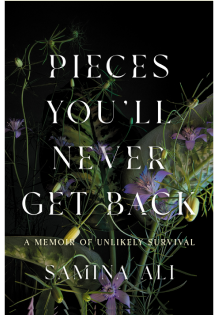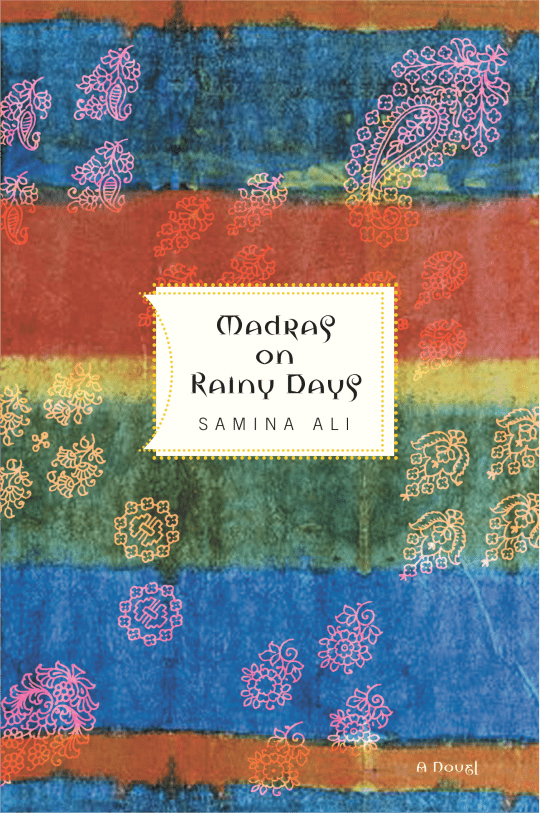Finalist for PEN/Hemingway Award for Fiction
“Samina Ali’s debut novel Madras on Rainy Days has created quite a buzz. Described by critics as “lyrical,” “compelling,” and “deeply feminist,” it is a story of a Muslim woman’s struggle in the modern world.” – International Examiner
In the heat and clamor of India, nineteen-year-old Layla and her mother, their faces veiled behind chadors, rush through the narrow alleys within the ancient walled city of Hyderabad. It’s two days before Layla’s marriage to a man she hardly knows and she’s becoming increasingly reluctant to go through with the wedding. Having grown up six months of the year in America, drinking beer and wearing bikinis, Layla had impulsively decided that the only way she would go through with an arranged marriage in India was by first taking on a lover of her choice in the U.S. What she hadn’t counted on was that she’d end up getting pregnant. Unable to face the truth of her daughter’s predicament, her mother now claims Layla is possessed by a demon and rushes the two off to seek the magic of an alim, a mystic healer. Quickly surmising that no magic will save Layla, the alim advises her to own up to what she’s done and cancel the wedding. But in a culture where a woman’s honor is a matter of life and death, young Layla is too scared by what might become of her.
Paralyzed, she allows the wedding to unfold. Afterward, to her relief, her new husband accepts Layla exactly as she is. But he asks the same of her: she, too, must accept Sameer for exactly who he is. During the couple’s honeymoon in Madras, as the monsoon rain beats down outside their hotel suite, it is not Layla’s American lover who unexpectedly shows up to stake a claim; the intrusive lover turns out to be Sameer’s — disguised in a black burqa so short it reveals hairy toes and men’s slacks.
Madras on Rainy Days tells a powerful, page-turning story about the constraints placed on both women and men by misguided societal expectations. Layla isn’t the only one to have lost her “virtue.” While every character believes him- or herself to be a model Muslim, not one is adhering to the true intention of the faith … and the women are the ones who end up paying the heaviest price. “Caught between cultural ruins,” Layla is left to separate out superstition from culture and patriarchal traditions from the egalitarian message of Islam, even if it means she must then leave behind her husband and her mother, everything she has ever grown to know
Related podcast interviews:

Authors Explore American Immigrant Experience
Liane Hansen
More from the author:

